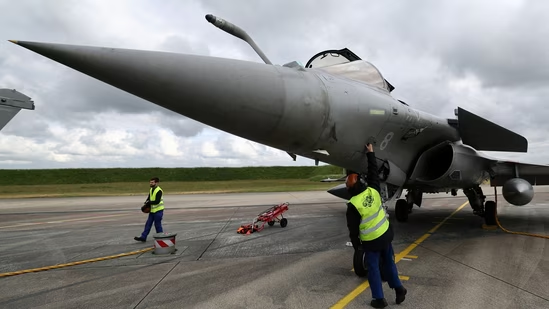
New Delhi/Paris, July 6, 2025 – French intelligence has raised alarms following Operation Sindoor, accusing China and Pakistan of orchestrating a “coordinated disinformation campaign” targeting the Dassault Rafale fighter jet—aimed at undermining its reputation, harming sales, and denting France’s strategic credibility. This comes in the wake of India’s recent military strikes against terrorist camps in Pakistan, where the Rafale played a prominent role.
🎯 What French Intelligence Found
According to official statements seen by Associated Press, Beijing allegedly used its embassies’ defense attaches to quietly lobby foreign governments to question the Rafale’s performance—especially after Pakistan’s contested claims of shooting down three Rafales during Operation Sindoor .
Reported tactics included:
- Viral social media posts
- AI‑generated images of Rafale wreckage
- Video-game simulations of downed jets
- Embassies discouraging Rafale purchases from existing or potential buyers like Indonesia
French officials stress this was not incidental—rather a targeted “disinformation offensive” meant to promote Chinese jets and erode France’s defense export influence .
🌐 Pakistan’s Role and the Operation Sindoor Narrative
Following India’s precision strikes on May 7 as part of Operation Sindoor, Pakistan’s state-linked outlets claimed they had shot down five Indian jets, including three Rafales, using Chinese-made J‑10 and JF‑17 fighters .
Yet, independent fact-checks have debunked these claims:
- India’s Press Information Bureau and embassy in Beijing flagged multiple Pakistani and Chinese posts as fake, recycled or misattributed, including false images of downed Rafales .
- Analysts emphasize a broader “information war” strategy, with both adversaries deploying disinformation across X, TikTok, Telegram, and messaging apps.
- Chief of Defence Staff Gen. Anil Chauhan revealed that 15% of Operation Sindoor’s operational time was spent combating disinformation, underlining its strategic importance.
✈️ How France Sees the Campaign
French defense analysts argue that the timing was strategic:
- By questioning Rafale’s reliability after its deployment, they sought to dissuade both current customers (eight nations; 323 of 533 jets exported) and potential buyers .
- Chinese pressure reportedly influenced Indonesia to reconsider extra purchases, although a new Letter of Intent for additional jets persists .
France’s Defense Ministry framed it as an attack not just on a jet, but on its national strategic autonomy, industrial strength and diplomatic ties, especially in Asia.
🛡️ India’s Response to Information Threat
India, too, has been actively countering false narratives:
- PIB and Ministry of External Affairs flagged doctored images and false claims, urging caution.
- The Indian Embassy in Beijing formally censured Global Times over unverified reporting on Operation Sindoor .
- Gen. Chauhan emphasized India’s self-reliance and the necessity of factual warfare, not hype .
🔍 Strategic Lessons and Regional Implications
This episode highlights crucial shifts in modern conflict:
- Non-kinetic warfare: Misinformation is now a frontline weapon, alongside missiles and aircraft .
- Tech rivalry: China’s campaign underscores its push to position Chinese fighters like J‑10 and JF‑17 against Western alternatives.
- Allied pressure: France’s concern over the Rafale’s brand illustrates how military sales are deeply entwined with diplomatic influence.
- India’s resolve: Operation Sindoor itself, executed with BrahMos, Akash, and domestic systems, showcased a clear pivot to indigenous defense and narrative control e.
🔭 What Comes Next
- France is reinforcing messaging around the Rafale, ensuring its performance narrative stays intact for future clients.
- India will keep strengthening its fact‑check networks and narrative vigilance, as future conflicts may intensify information warfare.
- China and Pakistan may continue amplifying claims online—even as fact-based rebuttals become more widely available.
In an era where a false image can travel faster than a real jet, truth itself becomes a strategic asset. The Rafale saga underscores that in modern warfare, controlling the narrative is as vital as air superiority.
Would you like a deeper breakdown of Rafale’s technical capabilities vs. J‑10/JF‑17, or a timeline graphic of the disinformation campaign?
Thanks For Reading